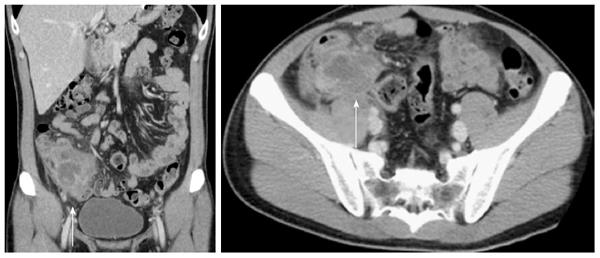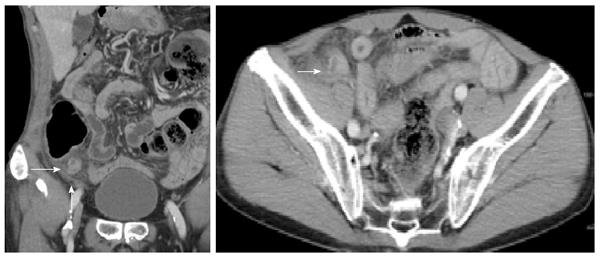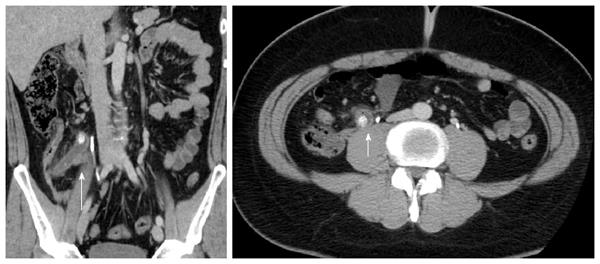Copyright
©The Author(s) 2015.
World J Gastroenterol. Apr 7, 2015; 21(13): 3921-3927
Published online Apr 7, 2015. doi: 10.3748/wjg.v21.i13.3921
Published online Apr 7, 2015. doi: 10.3748/wjg.v21.i13.3921
Figure 1 Representative computed tomography images of appendiceal diverticulitis.
An oblique coronal reformation of a contrast-enhanced CT (5-mm thick) (arrow) showing localized periappendiceal abscess. However, the appendix itself is not visualized clearly.
Figure 2 Computed tomography scan showing appendiceal diverticulitis.
An oblique coronal reformation of contrast-enhanced CT scan (5-mm thick) showing an inflamed diverticulum (arrow) and stranded surrounding fat. The inflamed diverticulum is visualized as a small, round cyst with an enhancing wall attached to the distal segment of the appendix. However, this patient’s appendix was not filled with fluid or enlarged.
Figure 3 Representative computed tomography scan showing acute appendicitis.
An oblique coronal reformation of contrast-enhanced computed tomography scan (5-mm thick) (arrow) is showing an enlarged appendix with fluid collection in the appendiceal lumen and appendicolith.
-
Citation: Ito D, Miki K, Seiichiro S, Hata S, Kobayashi K, Teruya M, Kaminishi M. Clinical and computed tomography findings of appendiceal diverticulitis
vs acute appendicitis. World J Gastroenterol 2015; 21(13): 3921-3927 - URL: https://www.wjgnet.com/1007-9327/full/v21/i13/3921.htm
- DOI: https://dx.doi.org/10.3748/wjg.v21.i13.3921











